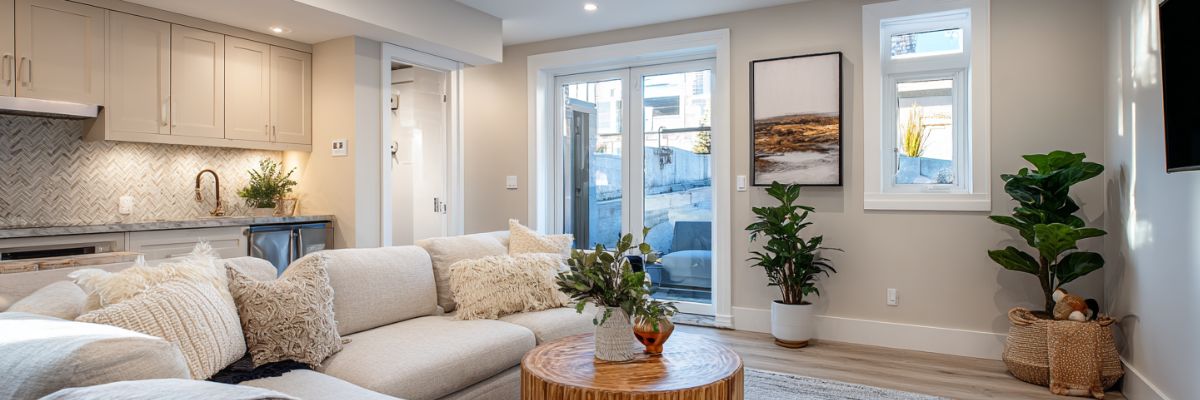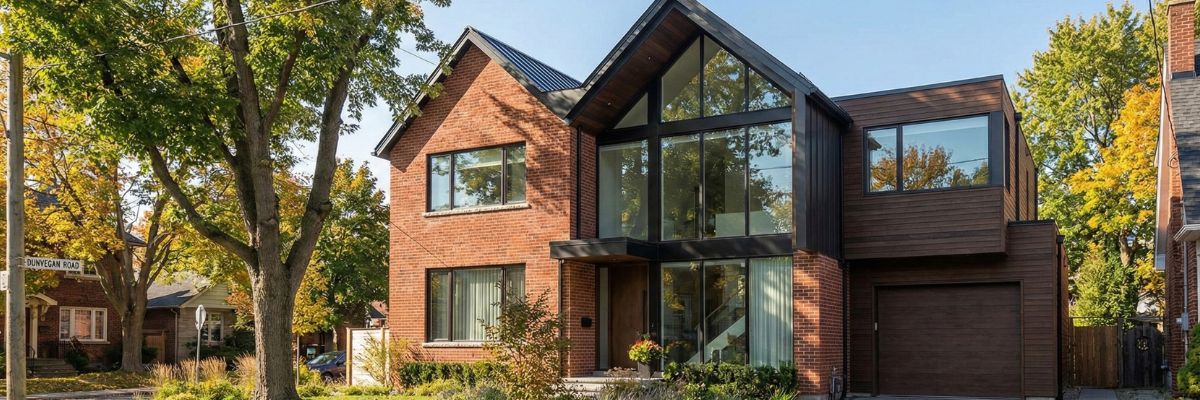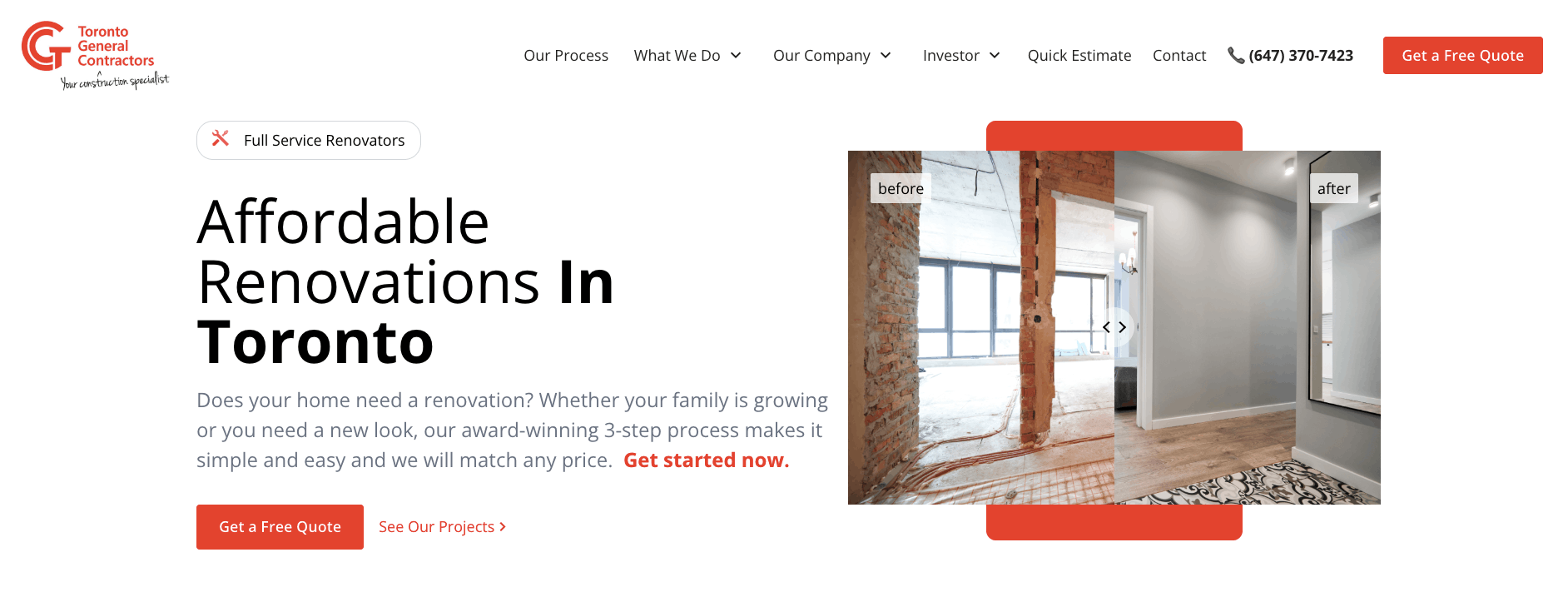How To Convert Your Garage To An Apartment In Toronto
To convert a garage to an apartment in Toronto, you must comply with city zoning bylaws, obtain specific permits, and ensure the space meets all building code requirements.
The process involves careful planning, navigating legal steps, and possibly significant construction work. With the right approach, a garage conversion can be a practical way to add living space or generate rental income, but you must follow all the necessary steps to do it legally.
.jpg)
Step 1: Check Zoning and Land Use Rules
The first step in converting your garage is to confirm that your property is zoned for residential use and that Toronto bylaws permit a secondary suite in your area. Secondary suites include basement apartments, garden suites, laneway houses, and garage conversions. Use Toronto’s interactive zoning maps or contact City Planning to determine if your lot qualifies.
Review Setbacks, Parking, and Floor Area
Garage conversions often raise issues around setbacks - the distance between the garage and the property line. Many residential lots have specific setback requirements that must be met for the converted structure to be legal. Additionally, if your garage currently serves as your only parking space, converting it may reduce your available parking and violate parking minimums. Toronto generally requires at least one on-site parking space per dwelling unit, although exemptions may apply. Check if floor area limits will be exceeded by adding a new dwelling unit.
Step 2: Meet Building Code and Safety Requirements
Minimum Ceiling Height and Structural Standards
According to Ontario’s Building Code, a legal secondary suite must have a minimum ceiling height of 1.95 meters (6 feet 5 inches). Older garages may not meet this standard and may require significant modifications to raise the roof or lower the floor. Structural soundness is also key - foundations, walls, and the roof must be in good condition and capable of supporting residential occupancy.
Fire Safety and Egress
To meet fire code standards, your garage apartment will need proper fire separations from the main dwelling, a hardwired smoke alarm system, and carbon monoxide detectors. There must be a safe and separate means of exit. This can include a direct exterior door or access to a shared exit path that complies with code.
Private Entrance Requirements
While the garage apartment can share an entry vestibule with the main house, the suite must have a private and distinct entrance. This is essential not only for code compliance but also for rental purposes.
Step 3: Obtain the Necessary Permits
Building Permits and Drawings
You must apply for a building permit from the City of Toronto before starting any work. The application requires detailed drawings that show the proposed layout, structural changes, and materials. A qualified architect or designer can help ensure your plans meet code and zoning standards.
Additional Permits for Systems
Depending on your plans, you may also need separate permits for:
- Plumbing (e.g., for adding a kitchen or bathroom)
- Electrical work
- HVAC upgrades (new heating and cooling systems)
Be prepared to submit other city-required documentation such as:
- A tree declaration (if construction could affect nearby trees)
- Public notice forms (depending on location and scope)
Permit fees vary depending on the size and complexity of the project. Processing time can take several weeks to months, so plan accordingly.
Step 4: Plan the Construction and Utility Upgrades
Insulation and Interior Finish
Most garages are not insulated to residential standards. To meet code and create a livable space, you will need to:
- Install insulation in all walls and ceiling
- Possibly replace or upgrade garage doors or windows
- Add vapor barriers and drywall
- Upgrade or raise flooring to meet thermal and comfort standards
Heating, Cooling, and Ventilation
You must provide adequate heating and ventilation for the new living space. Depending on the layout and existing systems, you may choose to:
- Extend your central HVAC system
- Install an energy-efficient mini-split system
- Add ventilation fans or HRVs as required by code
Plumbing and Electrical Systems
Converting a garage into a functioning apartment almost always involves running new plumbing lines for a kitchen and bathroom. Electrical systems must be brought up to residential code, with sufficient outlets, lighting, and circuit protection.
All work must be performed by licensed professionals and pass city inspection.
Step 5: Set a Budget and Explore Financing
Garage Conversion Costs in Toronto
The cost to convert a garage into an apartment in Toronto typically ranges between $56,500 and $159,000, depending on the condition of the garage and the extent of upgrades required. Here's a breakdown of potential costs:
Financing Options
Homeowners in Toronto have several financing options to consider:
- Home Equity Line of Credit (HELOC): Use your home’s existing equity to finance the renovation
- Mortgage refinance: Refinance your mortgage to access funds at lower rates
- Government grants: Some programs offer funding for creating affordable rental units or upgrading residential efficiency
Always consult a financial advisor to explore which option best fits your situation.
Step 6: Hire the Right Professionals
Architect or Designer
An architect or building designer can help create detailed drawings that meet code and satisfy permit requirements. They can also suggest ways to maximize the layout and improve livability.
Licensed Contractors
Look for contractors experienced in secondary suites and residential conversions. They should be familiar with the Toronto Building Code, permit process, and any site-specific challenges such as drainage or foundation repair.
You may also benefit from hiring a project manager or general contractor to coordinate trades and streamline construction.
What Is The ROI Of A Garage Conversion In Toronto?
Based on 2025 rental market data, the average monthly rent for a one-bedroom apartment in Toronto is approximately $1,715. If you price your garage unit more conservatively, around $1,400 per month, that results in an estimated gross rental income of $16,800 per year.
Garage conversion costs typically range from $56,500 to $159,000, depending on complexity and quality. Using a mid-range renovation cost of $100,000 and assuming the renovation increases your home’s value by about 65% to 80% of the project cost (or $65,000 to $80,000), your return improves significantly when rental income is added.
Here’s a simplified ROI formula including rental income in the first year:
ROI = (Value Increase + Rental Income) ÷ Cost
Using average midpoints:
- Value Increase: $72,500
- Annual Rental Income: $16,800
- Total Cost: $100,000
ROI = ($72,500 + $16,800) ÷ $100,000 = 89.3%
This means that in the first year alone, you could see an 89% return when combining increased property value with rental earnings.
Ongoing Annual Return
Beyond the first year, your ROI continues through rental income. At $16,800 annually, that represents a 16.8% yearly return on your original $100,000 investment—assuming stable rent and no significant additional expenses.
Additional Considerations
Impact on Resale Value
Garage conversions can increase property value by adding livable square footage or a rentable unit. However, removing covered parking may deter some future buyers. Weigh your long-term goals before proceeding.
Laneway Suites and Garden Suite Alternatives
Depending on the location and setup of your garage, you may be eligible for a laneway suite or garden suite designation. These types of accessory dwelling units (ADUs) have their own guidelines under the City’s housing initiatives and may offer more flexibility or long-term benefits.
Inspections and Final Approval
After construction, the City of Toronto will conduct final inspections to ensure that all building, plumbing, and electrical work complies with code. Only after passing all inspections can the suite be legally occupied or rented out.
Final Thoughts
Converting a garage to an apartment in Toronto is a rewarding but complex project. With the right preparation, permits, and professional help, you can create a safe, comfortable, and legal secondary suite that adds real value to your property. Whether for rental income, family use, or future resale, a well-executed garage conversion can be a smart urban housing solution.
Talk to Toronto General Contractors today about your garage conversion project. Our team specializes in navigating Toronto’s building codes, zoning requirements, and custom construction solutions to help you turn your underused garage into a fully legal and livable apartment. Contact us now for a free consultation and get expert guidance every step of the way.



.jpg)



.jpg)

.jpg)
